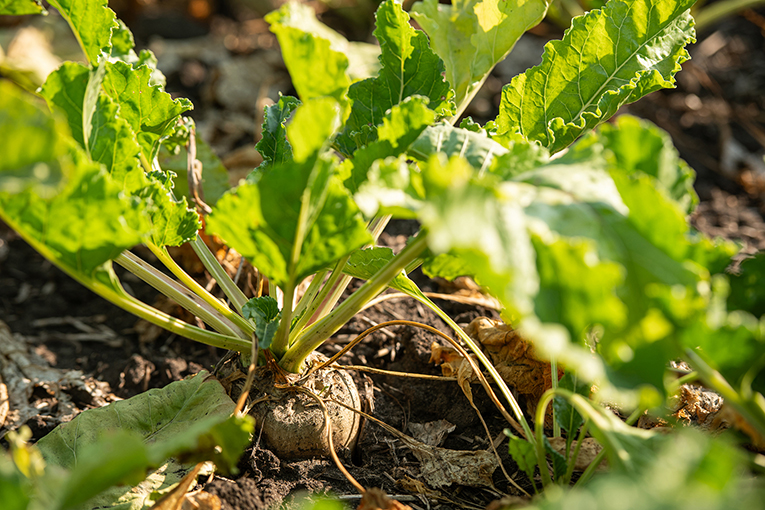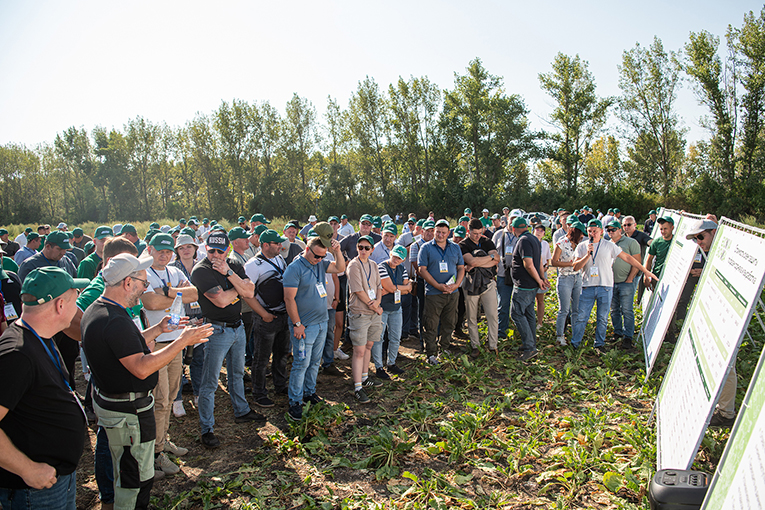EkoNiva’s specialists gather for crop production workshop
Press-centre / News,
EkoNiva has run its annual crop production workshop on the premises of its enterprise in Voronezh oblast. The largest ever event brought together over 150 managers and specialists from all of the Group’s geographies.

Regional directors, managers of operations, agronomists, service engineers, economists, IT specialists, representatives of commercial and human resources departments and other employees took part in the two-day training. It was devoted to the practices of cultivating cereals, industrial and forage crops in the Group’s Voronezh subdivision and discussion of important issues relating to agronomy: soil melioration, application of organic fertilisers, plant protection agents, etc.
‘There is a good reason for using Voronezh fields as the workshop platform. More than 20 years ago, it was here that EkoNiva began to intensively develop crop production, gaining a wealth of experience in this area over time. The climatic and geographical conditions and state-of-the-art technical equipment of the farms make for carrying out numerous production trials and regular demonstration tests. The positive results obtained can be applied to the operation of our enterprises in other regions’, says Aleksandr Anpilov, Director for Crop Production at EkoNiva.
At the workshop, the company's agronomists also elaborated on the no-till seeding technology. It is introduced on 25,900 hectares in Voronezh oblast, the largest area across the holding, and is being actively implemented in the Siberian region – on 20,350 hectares. A total of 59,350 hectares will be sown in 2024 using this practice.
‘No-till farming allows us to retain moisture in the soil, mitigate the impact of water and wind erosion, restore soil structure and reduce crop production expenses, thus enhancing overall cost efficiency’, says Aleksey Nizkodubov, Chief Agronomist at EkoNivaAgro-Left Bank.
Minimum tillage has particularly tangible results in light sandy soils, where average yields are significantly higher than with the conventional method. However, the technique requires liming and organic fertilisation.
In addition to the fields, the workshop participants visited a modern grain storage facility for 30,000 tonnes at EkoNivaAgro-Left Bank operation, where they discussed the use of silo bags.
‘This option offers us benefits such as minimisation of grain handling costs and reduction of transportation expenses, which helps to speed up the harvesting process when there is a shortage of vehicles and the grain storage facility has a limited receiving capacity. Besides, there is no need to go through the expense of drying forage – it can be put into silo bags while wet’, continues Aleksey Nizkodubov.

One of the topics for discussion at the event was alfalfa cultivation technologies. Due to its high nutrient content, which has a positive effect on animal productivity and health, this crop is a valuable component of the cow ration at EkoNiva.
‘The annual workshop has become an integral part of EkoNiva's corporate culture. The exchange of opinions and experience between specialists from different departments related to crop production contributes to working out the right direction of its growth and delivering great performance', concludes Aleksandr Anpilov.